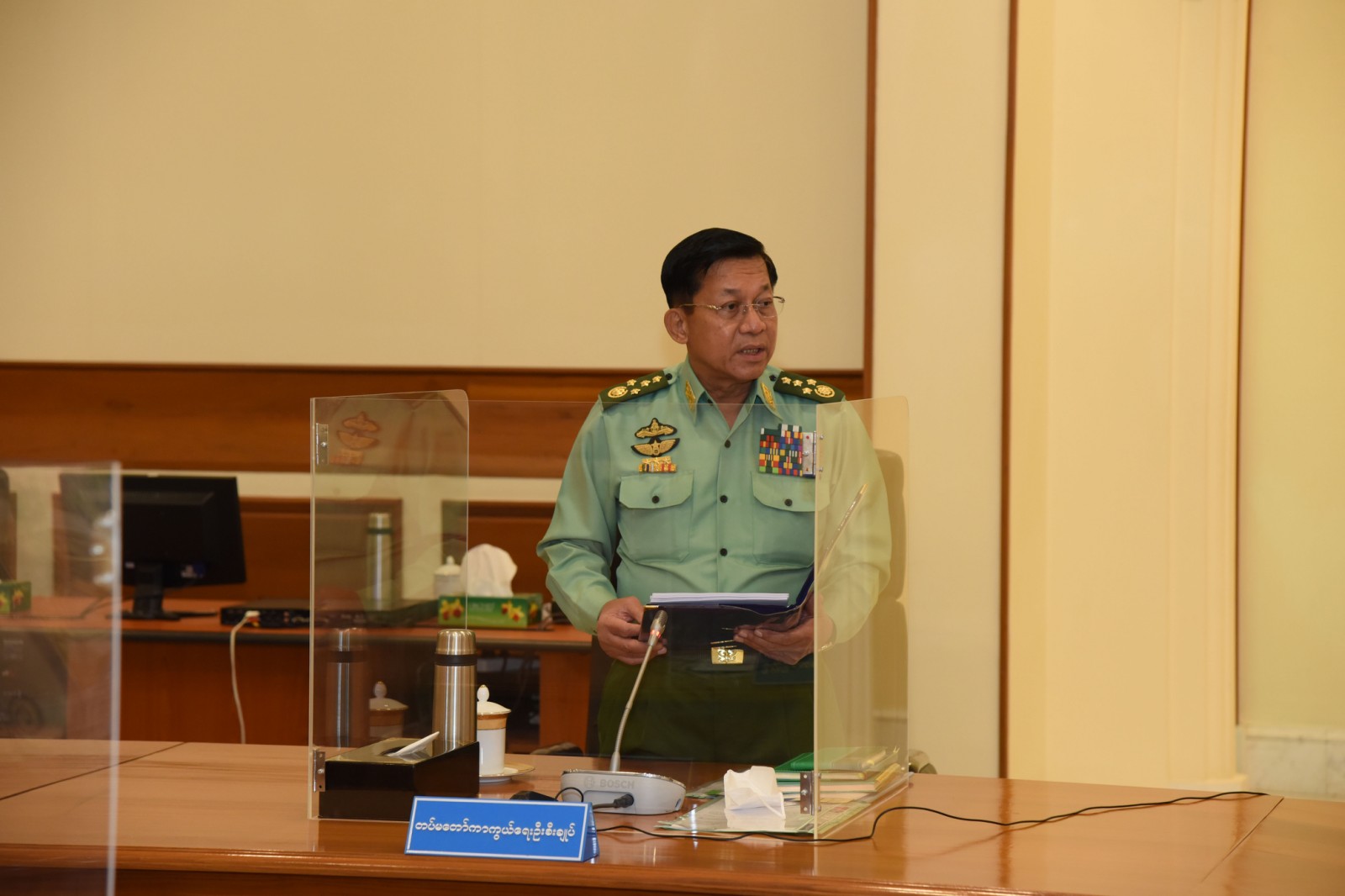Yangon, December (27)
The state of emergency declared by the National Defense and Security Council of the military regime will expire on February 1 next year.
The military council, which seized power on the false pretext of voter fraud in 2020 general election, declared the state of emergency for one year under Article 417 and another six months under Article 425 according to 2008 Constitution.
According to the 2008 Constitution, elections must be held within six months of the National Defense and Security Council handing over power from the Military Council to the National Defense and Security Council on February 1 next year.
At the end of the emergency period, a decision on whether to form a new government or an interim government and hold elections must be made; this decision is expected to be made by the beginning of next year, a lawyer said.
Democracy activists pointed out that the military council, which wants to be officially recognized, will hold an election in which military personnel will compete as candidates as a political outlet, so that they can seize power.
On the other side, the People’s Defense Forces (PDF) and ethnic armed groups (EAOs) are stepping up their resistance to overthrow the military dictatorship. As a result, the military force, which is losing strength in infantry operations, has begun to rely on airstrikes.

The military council can fully control only 72 of the country’s 330 townships, according to a report issued by the Special Advisory Council on Myanmar (SAC-Myanmar) in the second week of September.
Veteran politician U Pe Than also told Than Lwin Times that if the military council does not hold elections, the Tatmadaw may officially declare a coup d’état.
The military council is trying to hold a nationwide general election with a proportional representation PR system in August next year, saying it will hand over power to the winning party.
At present, the authorities are preparing to collect voter lists and determine the location of polling stations in some regions and states where there is no conflict, including its stronghold of Nay Pyi Taw council area and Yangon.
The National Unity Government (NUG) has declared that 2023 will be the year of the end of the revolution and that it will revoke the ruling group’s election.
Khu Daniel, secretary 1 of the Karenni National Progressive Party (KNPP), an ethnic armed organization, stated that now is the most critical time for revolutionary forces and ethnic armed organizations to work together to prevent the military council’s efforts.
The military council has currently established front lines nearly everywhere in the nation, and continued the conflicts with the joint force of People’s Defense Forces (PDFs) and ethnic armed forces (EAOs), deploying army, navy, and air forces.
On December 23, President Biden signed the US government’s National Defense Act (NDAA), which will provide non-lethal and non-weapon technologies to the Ethnic Armed Forces (EAO) and the People’s Defense Forces (PDFs).
According to this law, aid will be available for Myanmar from 2023 to 2027, so political analysts believe that if the law is implemented in practice, the military dictatorship will be ousted from power sooner or later. News-Than Lwin Times

